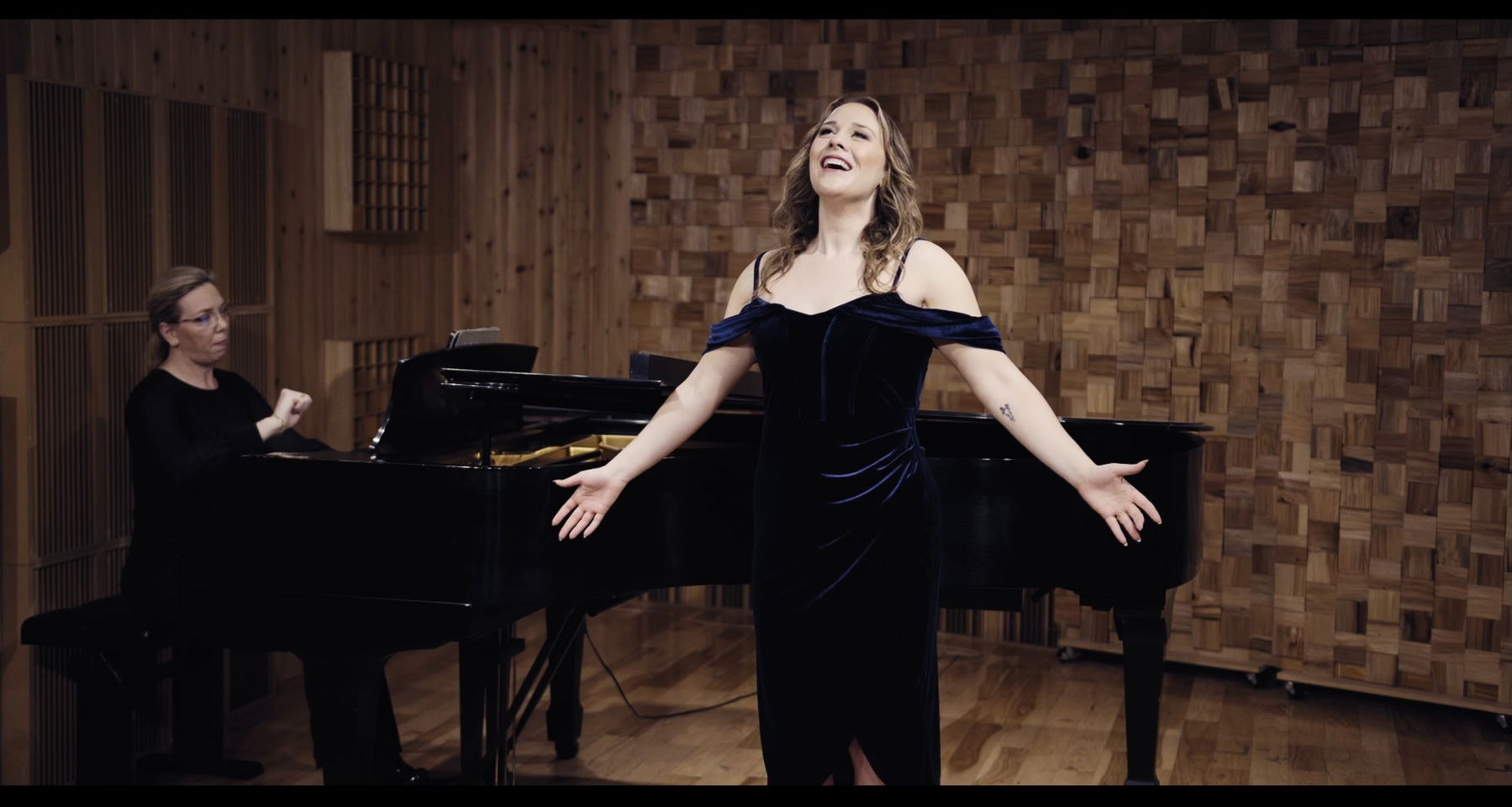
-
Capacity
- 1 of 25 spots still available
-

- Bring your own drinks
-

- All guests must be 21
-
Wheelchair access
- Not wheelchair accessible
This is a groupmuse
A live concert in a living room, backyard, or another intimate space. They're casual and friendly, hosted by community members.
Host
We welcome you to an exciting event of classicsl music and opera night
Doors open at 7:30 and music start at 8:00
What's the music?
Experience an enchanting evening of classical music with a world-class opera singer and pianist, celebrating a decade of captivating performances. Let the magic of timeless opera classics transport you as these seasoned artists bring their passion and mastery to the stage. Join us for an unforgettable night where every note resonates with elegance and emotion.
———————
I. Roméo et Juliette by Charles Gounod
1. Amour, ranime mon courage
2. Ah! Leve-toi soleil
II. Carmen by Georges Bizet
1. Je dis que rien ne m’épouvante
2. Parle-moi de ma mère (with Doohyun Yoon, tenor)
III. Rusalka by Antonín Dvořák
1. Song to the Moon
INTERMISSION
IV. Faust by Charles Gounod
1. The Jewel Song
V. The Merry Widow by Franz Lehár
1. Vilja Lied
2. The Merry Widow Waltz (Piano feature)
VI. La Traviata by Giuseppe Verdi
1. E strano… Sempre libera
2. Brindisi (with Doohyun Yoon, tenor)
Where does this music come from?
• Amour, ranime mon courage
Roméo et Juliette is an adaptation of Shakespeare's Romeo and Juliet and is considered one of the most faithful to the original play. The story is set in Verona, Italy, a dangerous world where poetry and violence can erupt at any moment.
“Amour, ranime mon courage” translates to “Love, revive my courage”. It is also known as the “Potion Aria” and is a pivotal moment in the opera that showcases Juliet's courage and defiance. In the opera, Juliet drinks the potion after calling on love to give her courage. The potion puts her into a death-like sleep so she can escape her arranged marriage to Count Paris and run away with Romeo. The aria is so difficult that it is often cut from productions.
• Ah, leve-toi soleil
Roméo and Juliette met briefly at the ball and instantly fell in love, just before discovering each other's last name. At the beginning of the opera's second act, Roméo secretly enters the garden at the house of the Capulets and speaks to himself of his love for Juliette.
• Je dis que rien ne m’épouvante
This aria is sung by Micaela in the third act: she has to bring the message of the illness of his mother to Don José and is brought by a guide to the rock where Don José keeps watching to protect the group smugglers to which he has joined himself. She is afraid but sings that she doesn’t want to feel her fears.
• Parle-moi de ma mère!
The duet ‘Parle-moi de ma mère’ is a poignant and tender moment in the opera, where the characters Don José and Micaëla reminisce about their past and express their longing for home.
• Song to the Moon
Rusalka is a Bohemian "Little Mermaid" story that's similar to The Little Mermaid by Hans Christian Andersen and Mélusine from French legend. Dvořák composed the opera in a burst of inspiration between April and November 1901. The aria is about a water nymph named Rusalka who falls in love with a human prince but can't communicate with him because she's invisible to humans. In the aria, Rusalka asks the moon to tell the prince of her love.
• The Jewel Song
By Act III, Scene 6 of Faust, the title character has made his pact with the devil and has been transformed into a young man in love with the beautiful maiden Marguerite. At first, she politely rejects his advances, but this only assures him of her purity. Faust marvels over Marguerite’s simple home and questions whether or not he should even be pursuing such an ideal, innocent creature.
Mephistopheles plants a box of jewels before hiding in the shadows with Faust. Marguerite comes home, with the handsome stranger from earlier in the day on her mind. She sees Siebel’s flowers, but then immediately is struck by the casket of jewels. Marguerite in her modesty is hesitant to believe such a grand gift could be for her, but she soon gives in and tries them on. Basking in their beauty and shocked at how regal they make her look, she sings Gounod’s famous “Jewel Song.”
• Vilja Lied
The "Vilja-Lied" is an aria from the operetta The Merry Widow by Franz Lehár. This famous aria comes early in the second act and is sung by the female lead, Hanna, and the chorus. In it she tells the story of the Vilja, a mountain nymph in the fictional European land of Pontevedria, who beguiles a hunter with her ravishing beauty.
• The Merry Widow Waltz
The Merry Widow Waltz is a memorable melody from the operetta The Merry Widow by Franz Lehár. The story is about Hanna Glawari, a wealthy young widow from the fictional Balkan province of Pontevedro. The opera explores themes of social and legal challenges faced by women, and Hanna's journey of self-discovery as she navigates her changing social status.
• E strano… Sempre libera
Violetta, a courtesan suffering from tuberculosis, has never really known love. She meets Alfredo at a glittering party, where he declares his year-long ardent passion for her, which he has not revealed until now. She makes light of his advances but after the party, muses about the stranger’s declaration and the emotions he has inspired in her.
• Brindisi
The Brindisi (“Libiamo ne'lieti calici”) in Act I Scene 1 of Verdi's La traviata is a very popular tune from the opera. The Italian term brindisi translates to the English word “toast”. In the story, Violetta hosts a party, despite being very ill with consumption, or tuberculosis.
Location
Exact address sent to approved attendees via email.
This is a groupmuse
A live concert in a living room, backyard, or another intimate space. They're casual and friendly, hosted by community members.
Host
Attendees






















 Continue with Facebook
Continue with Facebook
 Continue with Google
Continue with Google
 Continue with Apple
Continue with Apple
Comments (3)
Comment sections are only for participants.